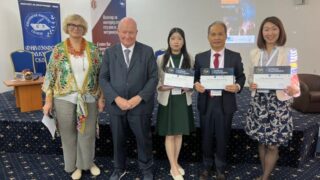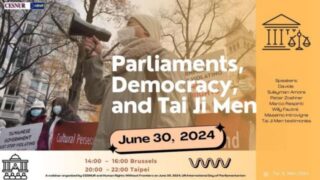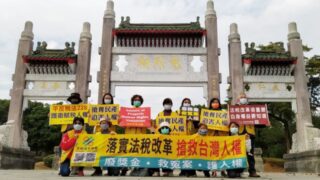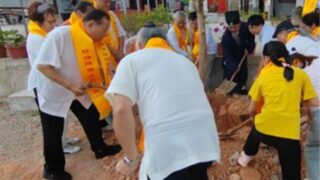The victims and the public opinion have a right to know the truth also about the events where groups have been unfairly discriminated as “cults,” as happened in the Tai Ji Men case.
by Rosita Šorytė*
*A paper presented at the webinar “Telling the Truth About Tai Ji Men and Other Victims of Abuse and Discrimination,” co-organized by CESNUR and Human Rights Without Frontiers on March 24, 2023, United Nations International Day for the Right to the Truth Concerning Gross Human Rights Violations and for the Dignity of Victims.


March 24 is the International Day for the Right to the Truth Concerning Gross Human Rights Violations and for the Dignity of Victims. Interestingly, the date honors a religious figure, El Salvador’s Archbishop Óscar Romero, who was murdered on 24 March 1980 for his public denunciations of human rights abuses in his country. It took twenty years to know the truth about who had killed him and who had ordered the assassination. By that time, the instigators of the murder had already died, and the material executor had gone into hiding and has not been found to this date. At least, thanks to the pressures of the international community and to some brave Salvadorian judges, the truth concerning Romero’s assassination, or a good part of it, is now known.
Those who discuss transitional justice, which has been the theme of other Tai Ji Men events, sometimes do not understand how important knowing the truth is. Transitional justice is defined as the kind of justice rectifying the human rights abuses of a past authoritarian regime after the transition to a democratic government. It includes the punishment of the perpetrators of gross human rights violations, the indemnification of the victims, and laws to prevent the abuses from happening again in the future. But it also has a fourth component: disclosing the truth about the abuses. Sometimes, punishing the perpetrators is impossible, as it happened in the Romero case. There can be no relatives left to indemnify. However, the whole country can be somewhat indemnified by telling it the truth about what happened.
It is now acknowledged that transitional justice applies by analogy also to human rights violations perpetrated by democratic or semi-democratic regimes. In these cases too, when it becomes clear that a human rights violation occurred, the first and most important justice to be rendered to the victims is publicly telling the truth.
There is a macro dimension of this principle. In post-Soviet countries, we know how difficult it is to find and tell the truth about what happened during the years of Soviet oppression. Sometimes, there are political reasons for not telling the truth and even for punishing scholars and others who investigate the past. One example is the crimes perpetrated by Stalin in Russia. Historians continuously discover new details, but the problem is that the Russian regime is now glorifying Stalin as a great patriot. In 2018 and 2020, two historians, unrelated to each other, who had been successful in discovering previously unknown mass graves of Stalin’s victims were suddenly accused of pedophilia, arrested, and sentenced. Either there is a curious phenomenon and only pedophiles study Stalin’s crimes, or this is a case where the truth should not be allowed to come out. One day we will perhaps also know the truth about the massacres currently perpetrated in Ukraine, but it will be difficult. There is a curtain of propaganda and lies that it will take many years to remove.
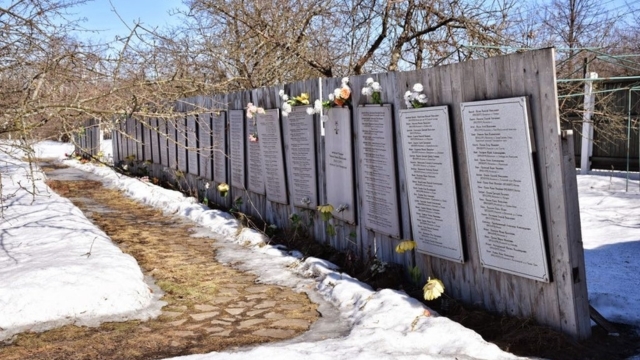

On a smaller but not unimportant scale, the same lies are told when the victims of crimes and human rights violations belong to religious and spiritual minorities stigmatized as “cults.” Anti-cultists specialize in blaming the victims. They argue that if something bad happens to “cultists” it should be more or less their fault.
There have been some spectacular cases recently. The man who assassinated former Japanese Prime Minister Shinzo Abe claimed he wanted to punish him for his support to the Unification Church. The killer claimed this church is an evil “cult” and was responsible for the problems of his mother, who went bankrupt in 2002 due to her excessive donations to the church. The anti-cultists managed to create a national media campaign blaming Abe and his party for supporting the Unification Church and the latter for soliciting important donations from its followers. As for the assassin, media were quite sympathetic to him.
On March 9, an ex-Jehovah’s Witness in Hamburg, Germany, killed seven members of his former congregation and an unborn child. Again, anti-cultists and some media blamed the victims, claiming that if the man acted in this way it was because he had been “destabilized” by the Jehovah’s Witnesses and by how they treat those who leave their congregations.
Here, too, the relatives of the victims, and everybody else, have a right to know the truth. It should be clarified to what influence and propaganda the killers were exposed, and whether they were excited by anti-cult hate speech. This is proved in the case of Abe’s assassin, who interacted on social media with anti-Unification-Church activists just before the murder.


In this webinar, we also ask to know the truth about the Tai Ji Men case. Why was a peaceful organization persecuted in 1996? Why even after the highest courts in Taiwan had declared it innocent did the tax authorities continue to issue ill-founded tax bills based on false premises? We always discuss why the Tai Ji Men case has not been solved after more than 26 years, and I believe the solution can only be political. However, a political solution needs first a public acknowledgement of the truth about the 1996 political purge against several Taiwanese religious and spiritual movements that started the whole case. This is part of transitional justice, too. It also confirms that transitional justice is not about the past only. It is often needed to solve problems of the present.






